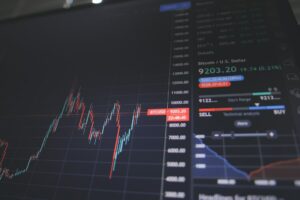The forex market is a decentralized global market where currencies are traded. It is the largest and most liquid market in the world, with an average daily trading volume of over $6 trillion. Forex trading has gained popularity in Nigeria in recent years, with more and more individuals and businesses participating in this lucrative market. However, with the increase in forex trading activities, there is also a need for proper regulation to protect traders and ensure a fair and transparent trading environment.
Regulation plays a crucial role in the forex market to ensure that brokers operate ethically and responsibly. In Nigeria, the regulatory body responsible for overseeing the forex market is the Securities and Exchange Commission (SEC). The SEC is tasked with the responsibility of regulating the activities of forex brokers to protect investors and maintain the integrity of the market.
One of the main reasons why regulation is important for forex brokers in Nigeria is to protect traders from fraudulent activities. The forex market is highly attractive to scammers and fraudsters due to its decentralized nature and the potential for high profits. Without proper regulation, traders are vulnerable to scams and fraudulent practices such as broker manipulation, unauthorized withdrawals, and unfair trading conditions. By enforcing strict regulations, the SEC ensures that only reputable and trustworthy brokers operate in the Nigerian forex market, thereby safeguarding the interests of traders.
Regulation also helps to ensure the financial stability of forex brokers. Forex trading involves the use of leverage, which allows traders to control larger positions with a small amount of capital. While leverage can amplify profits, it also increases the risk of significant losses. Without proper regulation, brokers may not have adequate risk management systems in place, which can lead to financial instability. By imposing capital requirements and conducting regular audits, the SEC ensures that forex brokers maintain sufficient capital to cover potential losses and protect client funds.
Another important aspect of regulation is the protection of client funds. Forex brokers are required to segregate client funds from their own operational funds. This means that in the event of the broker’s bankruptcy or insolvency, client funds will be protected and can be returned to the clients. Regulation also ensures that brokers have proper procedures in place for handling client funds, such as using reputable banks for fund storage and conducting regular audits to verify the safety of client funds.
Furthermore, regulation promotes transparency and fair trading practices in the forex market. Forex brokers are required to provide accurate and timely information to traders, including pricing, execution, and trading conditions. They must also disclose any conflicts of interest, such as if they act as a market maker or if they have any affiliations with other financial institutions. By promoting transparency, regulation allows traders to make informed decisions and ensures a level playing field for all participants in the market.
In conclusion, regulation is of utmost importance for forex brokers in Nigeria. It protects traders from fraudulent activities, ensures the financial stability of brokers, safeguards client funds, and promotes transparency and fair trading practices. As the forex market continues to grow in Nigeria, it is essential that the SEC and other regulatory bodies continue to enforce strict regulations to maintain the integrity of the market and protect the interests of traders.






